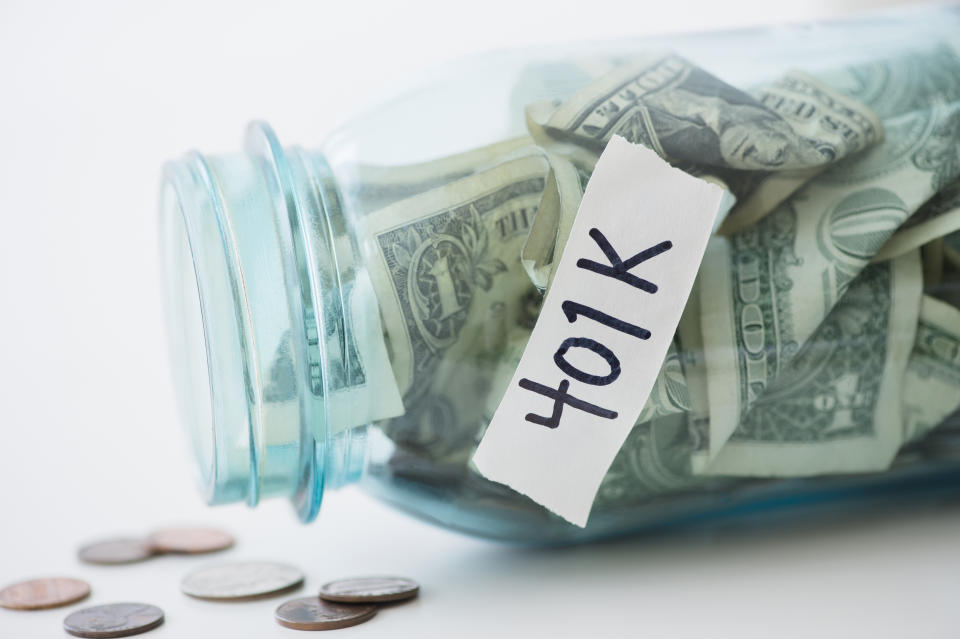Coronavirus Scams: 7 Ways Criminals Prey On Your Fear Of The Pandemic
No one is unaffected by the coronavirus pandemic. As a result of everything from government-mandated isolation to rampant unemployment, our lives look a lot different today than they did even a month ago. Unfortunately, there are plenty of people out there ready to prey on the resulting fear and confusion.
Twitch user “Kitboga,” who is known for trolling telemarketers over livestream, recently made headlines for putting the spotlight on coronavirus scammers. He’s uncovered everything from fake articles about coronavirus vaccines to companies hocking essential oils they promise will cure the virus.
“I’m not a psychologist, but I imagine you are less likely to make rational decisions when you’re afraid,” he told Wired. “Obviously there’s lots of fear right now ... We already are in that situation. So the scammers are one step ahead.”
Though Kitboga’s on-camera trolling bit is largely for entertainment, it brings to light a concerning trend that’s sprouted from the pandemonium surrounding COVID-19. Here’s a closer look at the various coronavirus scams out there right now and red flags to watch out for.
1. Coronavirus Stimulus Check Scams
You’ve likely heard about the highly anticipated coronavirus stimulus package that was recently passed, which could put some money in your pocket in the coming weeks if your earnings fall below a certain threshold. Since so many Americans are expecting relief, it provides a prime opportunity for scammers to strike.
“The U.S. government won’t be calling people individually to ask them to verify their bank account details,” warned Nathan Hamilton, a personal finance expert and industry analyst at The Ascent. He said if someone does call (or text) you regarding the stimulus, assume it’s a scam.
“If you used direct deposit on your last tax return, your stimulus payment will be sent directly to that bank account. Otherwise, you’ll receive a check in the mail at the address you used for your last tax return.”
In addition to direct payments, the stimulus package includes beefed-up unemployment benefits. If you plan to take advantage, know that you have to apply for unemployment ― you won’t be approached first.
“Scammers may start contacting people out of the blue, offering relief payments,” Hamilton said. “If you get a call like that, do not give out your bank account details or Social Security number.”
If someone does call (or text) you regarding the stimulus, assume it’s a scam.
2. Medicare Scams
Sara Hornick, a financial adviser with Hudson Wealth Management, says many of her clients are seniors, who tend to be targets of all types of scams. In light of the pandemic, she’s seen a couple of new scams making the rounds.
For example, criminals are calling older Americans to offer a supposed coronavirus vaccine or preventive medicine that’s covered by Medicare.
“All that a recipient needs to do is provide credit card information to pay for a co-pay or shipping, and the medicine will be delivered, saving them from the pandemic,” Hornick said. “Other times, these scammers will say that the recipient’s Medicare Supplement or Advantage plan will cover this medicine, but there needs to be verification of a Social Security number or bank account information.” That information is then used to commit identity theft.
Unfortunately, there is currently no coronavirus treatment or vaccine ― if there were, we wouldn’t be facing a national crisis right now.
“Medicare itself is not providing anything,” Hornick said. “All of your care should be coordinated through your doctor.” She noted that there are local agencies that call and can be of service to folks 65 and older, but they will identify themselves as being from that particular agency. And they will never ask for a Social Security number or bank account information.
3. Email Scams
The internet is a breeding ground for fraud, and email is one area where it’s easy to get duped.
“Cybercriminals love emergencies and times of uncertainty because people are scared, distracted and vulnerable – making them ideal targets,” said Tim Sadler, CEO and co-founder of email security firm Tessian.
One email scam to watch out for is someone impersonating a senior executive such as the CEO or CFO. They might send a message asking for personal details or financial information under the guise that your assistance is needed.
“I urge people to contact the person who requested you to do something via an internal channel like Slack or an SMS to confirm it was them,” Sadler said.
Similarly, as more companies transition to working remotely, hackers may pose as popular web conferencing applications and trick staff into clicking links that will “activate their web conferencing accounts.”
“Be less trusting of any email asking you to take an action,” Sadler said. “Look beyond the branding of the email or the display name and examine the full email address of the sender, and any URL, carefully.”
Scammers are also impersonating trusted institutions such as the World Health Organization, insurance companies, and banks.
“These attacks might ask you to confirm personal details, which can be used to try and access your legitimate accounts,” Sadler said. “The message might also include malicious links asking you to sign in and ‘confirm you are safe’ or ‘confirm you haven’t traveled to recent affected COVID-19 countries.’”
Sadler recommended that if you think anything is unusual about an email, don’t click any links. Instead, search for the institution online and find a support contact number to call and ask for verification that the communication is valid.
As more companies transition to working remotely, hackers may pose as popular web conferencing applications and trick staff into clicking links that will ‘activate their web conferencing accounts.’
4. Fake Coronavirus Website Scams
As the coronavirus spreads and new information comes to light about detecting and treating it, people around the world turn to the web to keep up to date.
“Unfortunately, the combination of fear, confusion and the lack of factual information in some countries serve as fertile ground for cyberattacks,” said Salvatore Stolfo, a Columbia University professor and researcher and the chief technology officer of Allure Security.
Stolfo explained there’s been a proliferation of new web domains containing the words ‘corona’ or ‘covid,’ many of which falsely claim to be data repositories for information about the virus, or to sell face masks, vaccines (which don’t exist, yet) and home tests that can detect COVID-19.
In fact, analysis by Check Point Software, a global cybersecurity firm, found that over 16,000 new coronavirus-related domains have been registered since early January 2020. Additionally, coronavirus-related domains are 50% more likely to be malicious than other domains registered during that same period.
It’s important to be mindful of what sites you visit and share information with, Stolfo said. Stick with trusted sources of information, and be wary of buying supplies from sites you’ve never heard of that offer inventory no other legitimate sites do.
5. Investment Scams
After the stock market plummeted earlier this month, millions of Americans saw their portfolios sink along with it. While many have understandably panicked over the situation, other investors see it as an opportunity to buy in while stocks are cheap.
Last month, the Securities and Exchange Commission issued an alert to warn of investment schemes that could pitch products and services that will be used to control or stop the coronavirus outbreak. “The SEC noted that there have been a number of internet promotions claiming that products and services of publicly traded companies can prevent, detect or cure coronavirus, and the value of the stock of these companies will increase dramatically as a result,” said William M. Welch II, deputy counsel and chief compliance and ethics officer for Voya Financial. “Individuals and companies should be wary of these types of promotions and understand that there is substantial potential for fraud.”
Not to mention, many of these “hot” buys are based on speculation, and may not pan out in the end.
Be less trusting of any email asking you to take an action. Look beyond the branding of the email or the display name and examine the full email address of the sender, and any URL, carefully. Tim Sadler, CEO and co-founder of email security firm Tessian
6. Debt scams
Debt scams are nothing new, but with individuals struggling to pay their bills as a result of businesses shutting down, scammers have even more opportunity to prey on the most vulnerable people.
“Some consumers may be in a financial position they’ve never been in before and may not have the knowledge of how to spot a debt scam,” said Leslie Tayne, a debt resolution attorney and author of the book “Life & Debt: A Fresh Approach to Achieving Financial Wellness.”
For example, scammers often use enticing language claiming that they can help you settle your debt for a certain amount or within a defined time period. “Because every situation is different, reputable debt relief companies cannot put such specific parameters on debt relief,” Tayne said. “If an offer sounds too specific or too good to be true, it probably is.”
Keep an eye out for debt relief companies that use a P.O. box instead of a physical address, don’t have live people answering phones or charge you up-front. Those are all signs of a scam.
7. Coronavirus Tax Scams
The federal tax deadline was pushed back to July 15 to give people dealing with coronavirus fallout more time to prepare, which means criminals have even more time to enact their scams.
“Tax scammers may file a return in your name or contact you claiming to be the IRS,” Tayne said. However, it’s important to know that the IRS will never contact you by phone before they’ve sent you multiple written notices regarding your taxes.
“Even if you receive information by mail that contains identifying information, be wary that it may not be verified,” Tayne said. “If you have any questions about tax returns filed in your name or mail you received claiming to be from the IRS, call your local IRS office directly for verification.”
Love HuffPost? Become a founding member of HuffPost Plus today.
A HuffPost Guide To Coronavirus
Stay up to date with our live blog as we cover the COVID-19 pandemic
When will life return to normal? Europe has some answers.
Digestive issues might be an early sign of coronavirus
How to file for unemployment if you’ve been laid off
Avoiding going to the store? Here’s how to order groceries online.
What to do if you live with someone with COVID-19
How often do we really need to wash our faces?
What coronavirus questions are on your mind right now? We want to help you find answers.
Related...
5 Census Scams To Watch Out For In 2020
How To Protect Your 401(k) From The Coronavirus Stock Market Downturn
Coronavirus Stimulus Checks: Here's Who's Eligible For Relief Payment
How To Prepare For Losing Your Job (While You Still Have One)
Also on HuffPost
Roll Over Your Old 401(k)

Switch Banks

Negotiate With Your Internet Provider

Complete A Health Assessment

Sign Up For Auto-Pay

Rethink Your Health Insurance

Skim Your Bank Statements

Listen To A Personal Finance Podcast

Switch To A Prepaid Cellphone Plan

Set It And Forget It

This article originally appeared on HuffPost.

